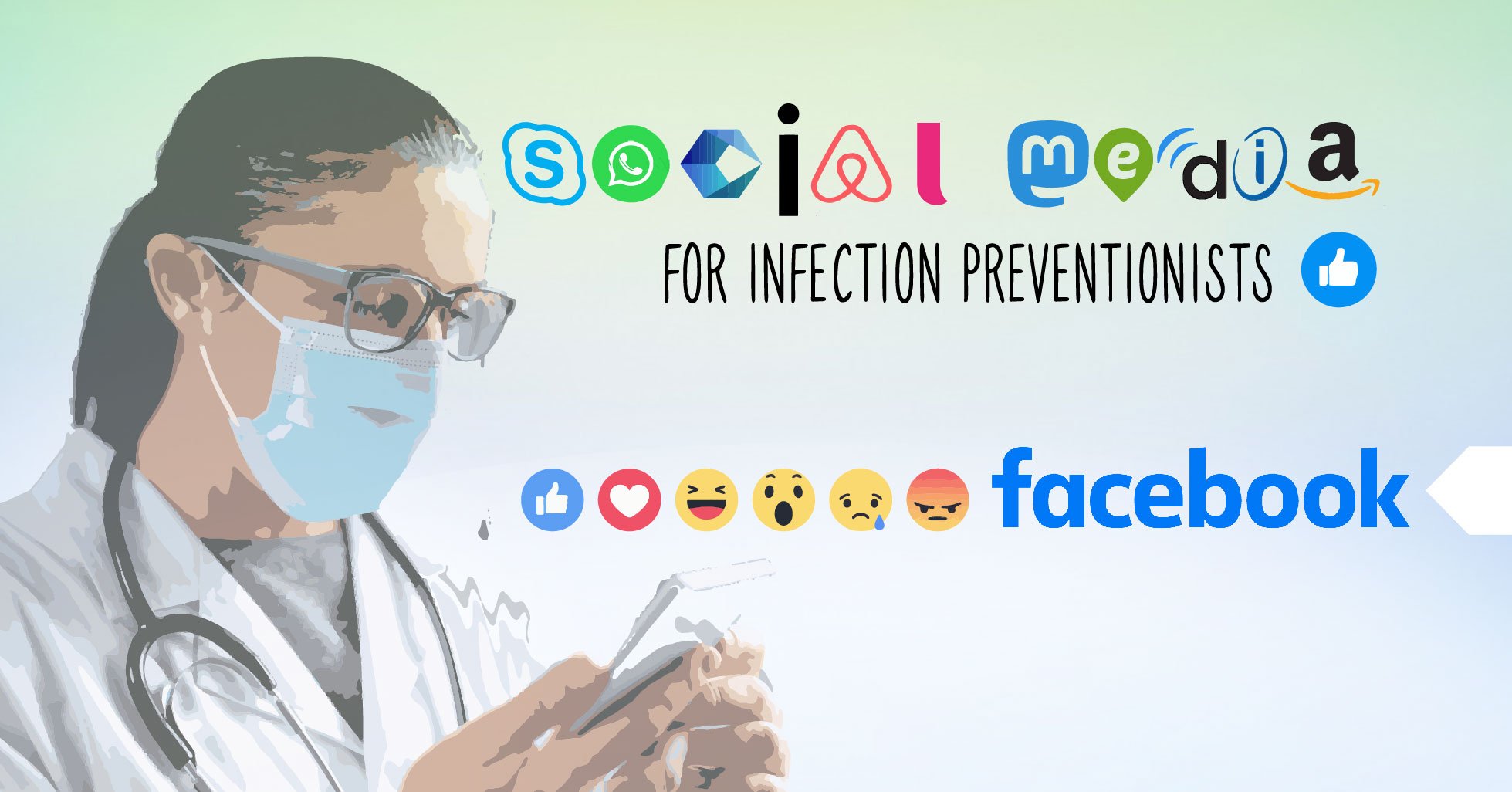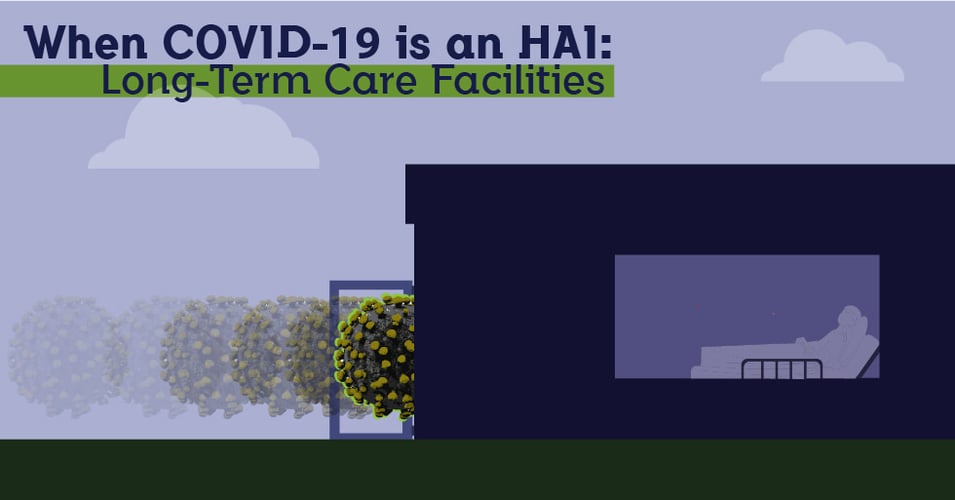Social Media for Infection Preventionists: Facebook

 Since Facebook's entry onto the social media marketplace in 2004, it has grown to a stunning 2 BILLION monthly active user base, more than the combined population of India and China. While dominant in ages 25-34, Facebook is used by over 74% of adults, with an almost even split between men and women. This enormous global reach, along with its unparalleled integration into our daily online lives gives the individual user access to information and people like nothing before. With this enormous market share comes issues of privacy and algorithm manipulation, so using Facebook as a healthcare professional does take some finesse. Read on to learn what we think infection preventionists can get from Facebook!
Since Facebook's entry onto the social media marketplace in 2004, it has grown to a stunning 2 BILLION monthly active user base, more than the combined population of India and China. While dominant in ages 25-34, Facebook is used by over 74% of adults, with an almost even split between men and women. This enormous global reach, along with its unparalleled integration into our daily online lives gives the individual user access to information and people like nothing before. With this enormous market share comes issues of privacy and algorithm manipulation, so using Facebook as a healthcare professional does take some finesse. Read on to learn what we think infection preventionists can get from Facebook!
Most likely, you are already an active user of Facebook, from staying in touch with friends to reading news articles and taking part in special interest group activity. How can you use your skills to enhance your professional life as an infection preventionist?
1. Follow PAGES | You can read and comment
Professional organizations, healthcare systems, research institutions, regulatory bodies, government agencies - they all have active accounts on Facebook. Find the ones that align with your professional goals, follow them, and then make sure to click on their posts to ensure that the Facebook algorithm learns about your interest. The Facebook algorithm is skewed to get engagement (clicks, likes, shares), so to train Facebook algorithm, you need to engage. If you are having a hard time finding the right page through a Facebook search, our advice is to seek out the organizations you respect through a Google/Bing/etc search, and then find their Facebook page via their website. Here are some suggestions:
- Mayo Clinic
- Centers for Disease Control and Prevention
- APIC - Infection Prevention and You
- Controversies in Infection Prevention (small but fantastic; also has a blog)
- Infection Diseases Society of America
- Certification Board of Infection Control and Epidemiology, Inc.
2. Join GROUPS | You can read, comment, and post
There are a number of active Groups made up of infection preventionist and related professionals. Join them! Members of the group will post articles, questions, and comments that you can engage with, giving you the opportunity to make professional connections. Find groups in your state or region to get a local perspective, or get a global perspective from the many international groups. Feel free to join a bunch and then weed out the ones that aren't working for you. Turn on Notifications so that posts don't get buried in your feed. Also, make sure to "look behind the curtain" on the Group main page to see who is running it; this is a great way to make sure the Group is not affiliated with a company or product line that will influence the content and interactions. Finding good Groups on Facebook can be quite difficult, so don't give up.
3. Be Appropriate, Even In Private Posts
With the enormity of the Facebook audience, it is a good professional decision to keep your Facebook posts appropriate. What does appropriate mean?
- First and foremost, your employer might have a social media policy, so make sure to get a copy and follow it! Learn about Facebook's privacy settings and adjust your profile accordingly.
- In general, however, being "appropriate" means being extremely careful about talking about medical cases online, even if the patient name is not mentioned. (More about medical privacy and social media here.) Don't post photos from your workplace that have people in the background, and get everyone's permission before posting. It is also a good idea not to connect to patients on social media.
- Remember that your social network probably takes health news and information from you more seriously because they know you are a medical professional. Being "appropriate" can therefore mean being careful about vetting the accuracy of medical information shared on your profile, either from you directly or through "Likes" and "Shares." It takes a few extra clicks, but making sure the information you are sharing is accurate can make a big difference to your social network.
4. Use Facebook, Don't Let it Use You
Keep in mind that Facebook is an enormous corporation like any other, and has many priorities that do not include your health or professional success! You can take the reigns and control what you see, but you can also take steps to keep Facebook where you want it. If a website or app wants you to log in using Facebook (or get perks by connecting to Facebook), remember you have a choice to say no! Hulu, Chrome, and many other apps use off-Facebook activity. (How to stop Facebook from tracking you.) Social Fixer for Facebook allows you to customize your feed outside of the algorithm, including hiding things you don't want to see, filter by content, and even filter out sponsored posts. And of course, you always have the option of opting-out of Facebook altogether without any risk to your professional life, we assure you.
There is so much to say about Facebook, we could not cover it all here. It's the elephant in the room, the 800-pound gorilla, the bull in the China shop. As infection preventionists, there are benefits to be gained from this massive social media platform, especially when it comes to staying up-to-date on news and research. We would love to know what Facebook Groups and Pages you have found the most helpful, so be sure to share them in the comments below!
![EOScu Logo - Dark - Outlined [07182023]-01](https://blog.eoscu.com/hubfs/Eoscu_June2024/Images/EOScu%20Logo%20-%20Dark%20-%20Outlined%20%5B07182023%5D-01.svg)




